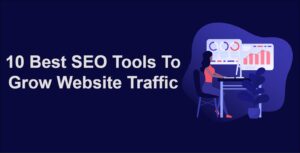Having a website, like ‘How To Index A Website On Google Search Engine,’ is just the first step in the vast internet landscape. To make your web presence worthwhile, you must ensure that your website is indexed by search engines, and Google, the most prominent one, is usually the primary focus.
Indexing your website on the Google Search Engine is essential for online visibility and business success. By following the steps outlined in this guide and monitoring your website’s performance through the Google Search Console, you can ensure your site is discoverable to your target audience.
This comprehensive guide will walk you through indexing your website on the Google Search Engine.
Understanding Website Indexing
What is Website Indexing?
Website indexing is the process by which search engines like Google crawl and store the content of your website in their database. When your website is indexed, it becomes searchable in search engine results, making it discoverable by users.
Why is Website Indexing Important?
Website indexing is crucial because it determines whether your website will appear in search results. Without indexing, your website remains hidden from potential visitors, impacting your online visibility and, subsequently, your traffic and business success.
How Google Indexing Works
Googlebot: The Web Crawler
Google uses automated web crawlers or Google programs to discover and index web pages. These crawlers follow links from one page to another, collecting information about the content and structure of websites.
Steps to Index Your Website on Google
Now, let’s dive into the steps you must follow to ensure your website is properly indexed by Google.
1. Create and Verify a Google Search Console Account
The Google Search Console is a free tool that helps you monitor and maintain your site’s presence on Google Search. Create an account and verify your website to get started.
2. Submit a Sitemap
A sitemap is a file that lists all the pages on your website. Submitting a sitemap to Google helps them understand your site’s structure. Use the Search Console to add and verify your sitemap.
3. Robots.txt File
Check your website’s robots.txt file. It tells search engines which parts of your site should not be crawled or indexed. Ensure that your essential pages are not blocked by the robots.txt file.
4. High-Quality Content
Google values high-quality, original content. Create valuable and engaging content that attracts both users and search engines.
5. Internal Linking
Use internal linking to connect your website’s pages. It helps Google discover new pages and understand the hierarchy of your site.
6. Backlinks
Quality backlinks from reputable websites can improve your website’s credibility and make it more appealing to Google.
7. Mobile Optimization
Ensure your website is mobile-friendly. Google prioritizes mobile-friendly websites in its search results.
8. Page Speed and Performance
Fast-loading websites are favored by Google. Optimize your site’s speed and performance for better indexing.
9. Secure Your Website (HTTPS)
Google prefers secure websites. Use HTTPS to protect data and gain a small ranking boost.
10. Regular Updates
Keep your website up to date with fresh content and regular maintenance. This shows Google that your site is active and relevant.
11. Monitor Indexing Status
Periodically check the Google Search Console to monitor your website’s indexing status. Address any issues or errors promptly.
How to fix google page indexing issues
Addressing these key areas can resolve common Google page indexing issues and improve your website’s visibility in search results.
Noindex Tags and Meta Robots Directives:
Check for “noindex” meta tags or robot directives in your website’s code that prevent indexing. Remove these directives to allow Google to index your pages.
Robots.txt File:
Review your website’s robots.txt file to disallow rules that block Googlebot’s access to specific pages. Adjust the robots.txt file to allow indexing of essential pages.
Crawl Errors Resolution:
Address crawl errors in Google Search Console. These errors, such as 404 pages or server issues, can prevent indexing. Identify and resolve these issues promptly.
Duplicate Content:
Resolve duplicate content issues, which can confuse search engines. Use canonical tags to specify the preferred version of a page when you have similar content on multiple pages.
Mobile-Friendly Design:
Ensure your website is mobile-friendly to meet Google’s mobile-first indexing criteria. Use Google’s Mobile-Friendly Test to identify and address mobile issues.
Page Speed and Performance Optimization:
Optimize your website’s performance to ensure fast loading times. Slow-loading pages can hinder indexing. Use tools like Google PageSpeed Insights for performance recommendations.
Troubleshooting Website Indexing Issues
Sometimes, issues may arise with website indexing. Here are some common problems and solutions:
1. Blocked Pages
If specific pages are not indexing, check your robots.txt file for accidental blocking.
2. Content Duplication
Duplicate content can confuse search engines. Use canonical tags to specify the preferred version of a page.
3. Crawl Errors
Crawl errors can hinder indexing. Use the Search Console to identify and resolve these errors.
4. Penalties
Google may penalize websites with poor practices. Review Google’s Webmaster Guidelines and make necessary improvements.





